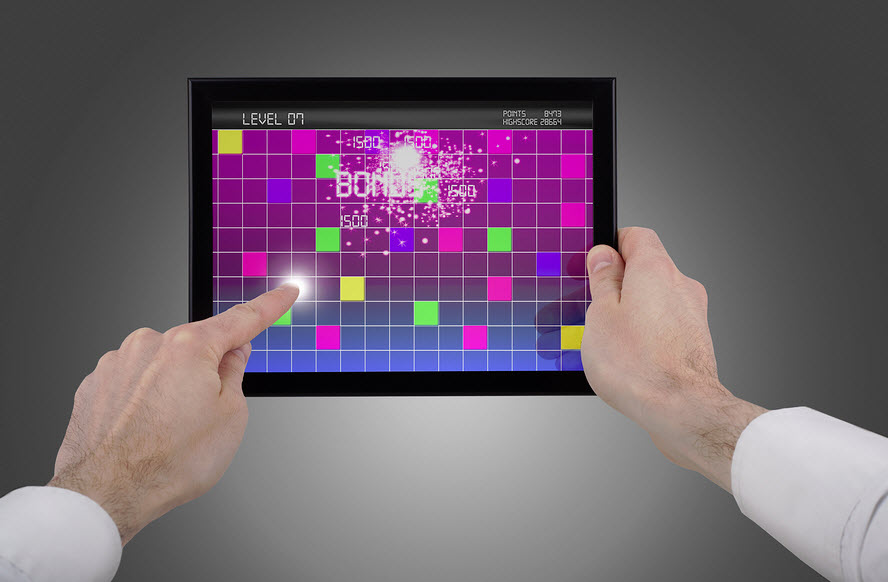The latest “smart diaper” product provides parents with a color coded system to detect urinary tract infections.
A new form of diaper that uses scannable QR codes has just been invented by an American husband and wife team that will help other parents to be able to detect potentially developing urinary issues before they become problematic.
Though the product is only in its prototype phase now, it has the potential to be very helpful to concerned parents.
The design of the diaper includes strips that come in contact with the absorbent area and that change color when they are wet. These strips are located around QR codes that can then be scanned by the parents of the child.
When the QR codes are scanned the associated app snaps an image of the color of the strips.
 The app then proceeds to perform an analysis of the color of the strips so that the parent can tell whether or not a urinary infection may be present. The reason that these QR codes can be very helpful to parents is that urinary tract infections (UTIs) impact approximately 8 percent of all babies. They are a particular concern among girls.
The app then proceeds to perform an analysis of the color of the strips so that the parent can tell whether or not a urinary infection may be present. The reason that these QR codes can be very helpful to parents is that urinary tract infections (UTIs) impact approximately 8 percent of all babies. They are a particular concern among girls.
Without tools such as the QR codes on the color coded diapers, it can be very difficult for parents to detect the infections until they have fully developed and begin presenting very unpleasant symptoms such as fever and irritability.
With the smart diaper, parents are armed with a form of early warning system that can let them know if an infection could be coming on, even before any other symptoms have appeared. All that is required is that QR codes be scanned once per day or so. The app not only scans the color of the strips on the diaper, but it also stores the data so that medical professionals can examine it during checkups or if a problem has been detected. This can help doctors to recognize potential dehydration or kidney dysfunction.
Though the response to these QR codes on diapers has been very positive, Netmums, a U.K. based parenting advice website has cautioned parents not to forget to use common sense just because they have a new technology tool.
Study shows consumers play mobile games on their tablets more so than other platforms
Frank N. Magid Associates, a media and entertainment research firm, has released a new study concerning mobile games. These games have been growing in popularity for some time, experiencing the bulk of this growth over the past five years. As consumers become more involved in their smartphones and tablets, these games are finding a foothold with a larger audience. The prominence of mobile technology has made mobile games a very lucrative and influential part of the game industry.
Tablets account for $914 million in in-game spending
The study shows that mobile games have established a strong following, but that the majority of those that play these games prefer to do so on tablet devices. The study suggests that 69% of tablet users play games on their device, with 31% of these gamers participating in in-game transactions. These gamers spent an average of $48 each on mobile games over the past year. This translates into tablets representing some $914 million of in-game spending.
 Tablets offer better experience for mobile games
Tablets offer better experience for mobile games
The reason people seem to prefer tablets over smartphones when it comes to mobile games is relatively straightforward. Tablets feature larger screens that are typically more responsive than those than can be found on smaller mobile devices. This allows for better control in mobile games as well as the opportunity to experience these games on a larger scale rather than be forced to view games on a small, somewhat restrictive screen. The larger size of tablet devices is also accommodating to higher quality hardware, allowing these devices to offer more graphical power to mobile games than smartphones.
Android may be catching up to iOS
Tablets have established themselves as the primary platform for mobile games. This is not likely to change in the immediate future, despite the fact that new smartphones are emerging with better graphics processing units and other such hardware. Currently, the iPad is the most popular tablet for mobile games, but the study shows that Android tablets are beginning to gain momentum among consumers.
 The app then proceeds to perform an analysis of the color of the strips so that the parent can tell whether or not a urinary infection may be present. The reason that these QR codes can be very helpful to parents is that urinary tract infections (UTIs) impact approximately 8 percent of all babies. They are a particular concern among girls.
The app then proceeds to perform an analysis of the color of the strips so that the parent can tell whether or not a urinary infection may be present. The reason that these QR codes can be very helpful to parents is that urinary tract infections (UTIs) impact approximately 8 percent of all babies. They are a particular concern among girls.
 Tablets offer better experience for mobile games
Tablets offer better experience for mobile games